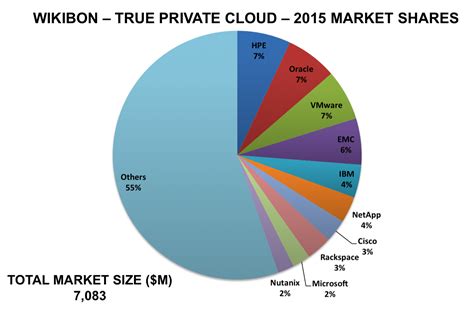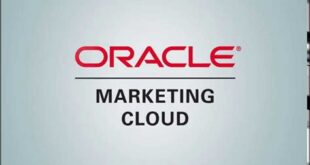
Introduction
This article aims to provide a comprehensive overview of the cloud market share within the Marketing Cloud niche. The cloud computing industry has seen exponential growth in recent years, transforming the way businesses operate and store their data. As organizations increasingly leverage cloud technology for various purposes, understanding the market share dynamics becomes crucial for informed decision-making. In this article, we will delve into the key players, market trends, and factors driving the cloud market share in the Marketing Cloud niche.
Oracle Marketing Cloud is a powerful marketing automation platform that enables businesses to create and deliver personalized campaigns. With features like customer segmentation, email marketing, and lead nurturing, Oracle Marketing Cloud helps businesses drive engagement and conversions.
Importance of Cloud Market Share
Cloud market share plays a crucial role in the competitive landscape of the Marketing Cloud industry. It provides businesses with vital insights into market trends, consumer preferences, and the performance of various cloud services. Understanding cloud market share enables organizations to make informed decisions, allocate resources effectively, and stay ahead of their competitors. In this article, we will explore the significance of cloud market share in the Marketing Cloud industry, unveiling how it influences businesses and why it is essential to stay informed about the latest market share data.
The Power of Cloud Market Share:
Cloud market share is like a compass that guides businesses on their journey towards success. By analyzing market share data, organizations can identify which cloud service providers dominate the industry and tailor their strategies accordingly. It allows them to assess the popularity of different cloud offerings, such as infrastructure as a service (IaaS), platform as a service (PaaS), and software as a service (SaaS). With this knowledge, businesses can align their marketing efforts, product development, and customer support in a way that meets the evolving needs and preferences of their target audience.
Moreover, understanding cloud market share enables businesses to identify emerging trends and opportunities in the Marketing Cloud industry. As new players enter the market or existing ones gain momentum, market share data helps enterprises stay agile and adapt their strategies proactively. It allows businesses to seize potential partnerships, investments, or acquisitions that can further propel their growth and expansion. By staying up to date with cloud market share statistics, organizations can avoid being left behind in a rapidly evolving industry.
Driving Business Decisions:
Cloud market share data empowers decision-makers within organizations to make informed choices. Whether it’s selecting a cloud service provider, evaluating potential partnerships, or allocating resources, understanding market share is paramount. The available data helps businesses assess the stability, reliability, and scalability of various cloud providers. It enables organizations to make strategic decisions based on the performance, market dominance, and customer satisfaction of different vendors. This knowledge ensures that businesses invest in the right cloud services that meet their specific needs and goals, leading to enhanced operational efficiency and cost savings.
Furthermore, cloud market share data allows businesses to gauge the overall health of the Marketing Cloud industry. By comparing market share numbers over different periods, organizations can evaluate the growth and maturity of the industry as a whole. This information provides insights into market saturation, potential areas for innovation, and whether there is room for new entrants or disruptive technologies. By analyzing cloud market share, businesses can better forecast market dynamics, anticipate customer demands, and align their strategies with the evolving landscape.
Making Informed Business Moves:
A robust understanding of cloud market share empowers businesses to make impactful moves that can shape their future. Market leaders must track market share data meticulously to maintain their position and defend against potential threats. Meanwhile, challengers can leverage market share insights to identify gaps in the market and differentiate themselves strategically. Startups and small businesses can also benefit from this data by selecting niche markets or identifying untapped segments with growth potential.
Cloud market share data acts as a catalyst for innovation. By understanding the current market landscape, businesses can identify customer pain points and design solutions that align with market demands. It enables companies to invest in research and development to improve their offerings or create new disruptive technologies that can shake up the industry. With a comprehensive understanding of market share, businesses can navigate marketing complex landscapes confidently and outline their roadmap to stay ahead of the competition.
In conclusion, cloud market share is of utmost importance in the Marketing Cloud industry. By understanding market trends, consumer preferences, and the performance of different cloud service providers, businesses can make informed decisions, drive strategy, and stay competitive. The power of cloud market share cannot be overstated. It acts as a compass, enabling businesses to navigate through a rapidly evolving industry successfully. So, embrace the insights provided by cloud market share, and let it guide you towards growth and success!
Marketing cloud offers a range of tools and solutions to help businesses streamline their marketing efforts. With features like data management, personalization, and campaign automation, marketing cloud platforms like Salesforce Marketing Cloud and SAP Marketing Cloud are becoming increasingly popular.
Factors Influencing Market Share
When it comes to the cloud market share, several factors come into play and influence the success of companies in the Marketing Cloud industry. This article will delve into these factors, providing valuable insights for both businesses and individuals in the technology sector.
1. Competitive Landscape:
The competitive landscape of the Marketing Cloud industry plays a significant role in determining market share. Companies constantly strive to outperform their competitors by offering innovative solutions, better pricing, and superior customer service. This intense competition fuels growth and influences the market share of each company.
2. Customer Satisfaction:
In any industry, customer satisfaction is paramount to a company’s success. Maintaining high levels of customer satisfaction helps businesses not only retain existing customers but also attract new ones. Positive word-of-mouth and recommendations can significantly impact market share, as satisfied customers become brand advocates, amplifying a company’s reach and influence.
3. Technological Advancements:
The rapidly evolving technology landscape has a direct impact on market share. Companies that invest in research and development and stay at the forefront of technological advancements tend to have a competitive edge. By offering cutting-edge solutions and keeping up with industry trends, these companies can attract more customers and increase their share of the market.
4. Strategic Partnerships:
In today’s interconnected world, strategic partnerships play a vital role in shaping market share. Collaborating with other companies that offer complementary services or products can open up new avenues for growth. By joining forces, companies can leverage each other’s strengths and expand their customer base, ultimately influencing market share.
5. Pricing Strategy:
Pricing is a critical factor that can significantly impact market share. Companies that adopt a competitive pricing strategy can attract price-conscious customers. On the other hand, premium pricing may appeal to customers who value quality and are willing to pay a higher price. Developing a pricing strategy that aligns with customer expectations and market trends is essential for maintaining and increasing market share.
6. Marketing and Branding:
Effective marketing and branding play a crucial role in market share growth. Companies that invest in brand-building initiatives and employ targeted marketing tactics can create a strong brand presence in the market. This, in turn, helps increase brand recognition, attract new customers, and ultimately expand the company’s market share.
Marketing Cloud industry players should strive to optimize each of these factors to stay competitive and increase their market share. By constantly evaluating and adjusting their strategies, companies can position themselves for growth and success in the ever-evolving cloud market.
Cloud market share is an important metric for companies in the tech industry. It refers to the percentage of the market that each cloud provider holds. Keeping track of cloud market share is crucial for businesses looking to make informed decisions about their cloud infrastructure.
Benefits of High Market Share
When it comes to the Marketing Cloud niche, having a high market share can bring numerous advantages and opportunities. Companies that dominate the market are able to leverage their position to gain a competitive edge, increase profitability, and drive growth. In this article, we will explore the benefits of having a high market share and how it can positively impact businesses operating in the cloud industry.
1. Enhanced Brand Reputation: A significant market share in the Marketing Cloud niche reinforces a company’s brand reputation. This dominance signals to customers and competitors alike that the company is a key player in the industry. It establishes credibility and trust, making it more likely for potential customers to choose the market leader over its competitors.
2. Economies of Scale: With a higher market share, companies can take advantage of economies of scale. As the volume of customers and transactions increases, the cost per unit decreases. This cost reduction allows the market leader to set competitive pricing and offer attractive deals to its customers, thereby attracting more clients and further expanding its market share.
3. Increased Pricing Power: High market share grants companies the ability to control pricing in their niche. The market leader can afford to charge premium prices for their products or services while still maintaining a significant customer base. This pricing power often leads to higher profit margins and increased revenue, further strengthening the company’s position in the market.
4. Stronger Supplier Relationships: A company with a high market share is an attractive customer for suppliers. As the dominant player in the Marketing Cloud industry, they have the ability to negotiate favorable terms and secure better deals with their suppliers. This allows them to reduce costs, improve product quality, and maintain a competitive advantage over smaller competitors.
5. Greater R&D Investment: Companies with a substantial market share can allocate more resources towards research and development. This increased investment in innovation allows them to continuously enhance their products or services, stay ahead of the competition, and meet the evolving needs and expectations of their customers. This commitment to R&D contributes to the long-term sustainability and growth of the market leader.
6. Access to Talented Workforce: A company with high market share often becomes an employer of choice. The reputation and stability associated with being a dominant player in the industry attract top talents. Skilled professionals strive to join organizations that are leading the market, offering better career prospects and opportunities for growth. This allows companies with high market share to recruit and retain the best talents, further strengthening their competitive advantage.
7. Influence on Industry Standards and Practices: When a company commands a significant market share, it possesses the power to influence industry standards and practices. The market leader can shape the direction of the industry by setting benchmarks, introducing new technologies or methodologies, and driving innovation. This influence further consolidates their position as the go-to authority in the Marketing Cloud niche, cementing their market share and making it harder for competitors to catch up.
In conclusion, a high market share in the Marketing Cloud niche offers numerous benefits. From enhanced brand reputation and economies of scale to stronger supplier relationships and influence over industry standards, it’s clear that dominating the market brings substantial advantages. Companies with a high market share can thrive in this highly competitive industry and position themselves for long-term success.
Google Marketing Platform is a suite of tools and products that help businesses manage and optimize their digital marketing efforts. From ad campaign management to analytics and reporting, Google Marketing Platform offers a comprehensive solution for businesses of all sizes.
Strategies for Gaining Market Share
In the highly competitive world of Marketing Cloud, businesses are constantly vying for a greater share of the market. In order to thrive and stay ahead of the competition, it is essential to adopt effective strategies that can pave the way towards increased market share. Here, we will explore some proven strategies that businesses can utilize to gain a larger slice of the ever-expanding Marketing Cloud market.
1. Offering Unique Solutions: One of the most effective ways to gain market share is by offering innovative and unique solutions that set your business apart from competitors. By providing a distinct value proposition and addressing customer pain points, businesses can attract new customers and retain existing ones. Through research and development, organizations can identify gaps in the market and develop products or services that fulfill those unmet needs.
2. Building Strong Partnerships: Collaboration is key to success in the Marketing Cloud landscape. By partnering with complementary businesses, companies can leverage each other’s strengths and resources to reach a larger customer base. Strategic alliances and partnerships can also facilitate access to new markets and distribution channels, helping businesses expand their reach and ultimately increase their share of the market.
3. Investing in Research and Insights: To effectively gain market share, businesses must have a deep understanding of their target audience and market trends. Investing in market research and data analytics can provide valuable insights into customer preferences, behaviors, and demands. Armed with this information, organizations can tailor their products, services, and marketing strategies to better meet customer needs and outperform competitors.
4. Enhancing Customer Experience: Providing exceptional customer experience is crucial for businesses aiming to increase their market share. By delivering personalized and memorable experiences at every touchpoint, companies can differentiate themselves from the competition and foster customer loyalty. Investing in user-friendly interfaces, efficient customer service, and streamlined processes can help businesses leave a lasting positive impression on customers, prompting them to choose your brand over others.
5. Implementing Effective Marketing Strategies: Developing and implementing a comprehensive marketing strategy is indispensable in gaining market share. A well-crafted marketing plan, encompassing various channels such as social media, content marketing, and search engine optimization (SEO), can enhance brand visibility, attract qualified leads, and drive conversions. By consistently and effectively communicating the unique value proposition of a product or service, businesses can captivate the target audience and capture a larger portion of the market.
6. Pricing Strategies: Careful consideration of pricing strategies can significantly impact a business’s market share. Conducting market research and competitor analysis can help identify pricing gaps and opportunities. Offering competitive pricing can attract price-sensitive customers, while premium pricing can position a product or service as a high-quality and exclusive option. A strategic pricing strategy should strike a balance between profitability and appealing to target customers.
7. Expanding Geographical Reach: For businesses looking to expand their market share, geographical expansion can be a fruitful strategy. Identifying untapped markets or regions with high growth potential can open doors to new customers and revenue streams. By tailoring marketing efforts to specific geographic regions and addressing cultural nuances, businesses can effectively penetrate new markets, increase brand awareness, and ultimately boost market share.
8. Staying Ahead of Technological Advancements: The Marketing Cloud landscape is characterized by rapid technological advancements. To gain an edge in this competitive arena, businesses must stay abreast of the latest trends and harness emerging technologies to their advantage. Whether it’s adopting artificial intelligence (AI), machine learning, or automation, leveraging technology effectively can streamline operations, enhance productivity, and solidify a company’s position in the market.
9. Providing Continuous Support and Training: Another powerful strategy for gaining market share is by providing continuous support and training to customers. By offering exceptional after-sales service, businesses can foster customer loyalty and encourage repeat purchases. This includes providing prompt and effective customer support, offering regular training programs, and ensuring seamless product integration. Happy and satisfied customers are more likely to advocate for your brand and attract new customers through positive word-of-mouth.
In conclusion, gaining market share in the fiercely competitive Marketing Cloud niche requires a combination of strategic planning, innovation, and customer-centricity. By adopting these proven strategies, businesses can position themselves for success in a rapidly evolving market and secure a larger share of the Marketing Cloud industry.
Salesforce Marketing Cloud is a robust marketing automation platform that allows businesses to create personalized, targeted campaigns across multiple channels. Through its integration with Salesforce CRM, businesses can track customer interactions and optimize their marketing strategies.
 Cloud Solution All Cloud Information
Cloud Solution All Cloud Information









